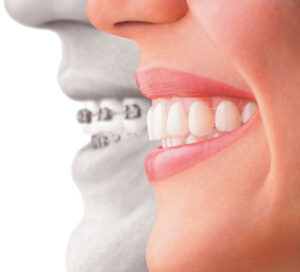Dental Prevention & Healthy Habits
 Healty Habits
Babies and Children
Teaching your child good oral hygiene habits early can lead to a lifelong healthy smile, but did you know that just because babies don’t have any visible teeth, doesn’t mean they can’t get cavities? A baby’s 20 primary teeth are already present in the jaws at birth. And those baby teeth that begin coming through the gums around 6 months help set the stage for future smiles by keeping space in the jaw for adult teeth.
Healty Habits
Babies and Children
Teaching your child good oral hygiene habits early can lead to a lifelong healthy smile, but did you know that just because babies don’t have any visible teeth, doesn’t mean they can’t get cavities? A baby’s 20 primary teeth are already present in the jaws at birth. And those baby teeth that begin coming through the gums around 6 months help set the stage for future smiles by keeping space in the jaw for adult teeth.
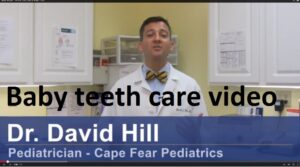 Baby teeth matter
When a baby tooth is lost too early, the permanent teeth can drift into the empty space and make it difficult for other adult teeth to find room when they come in. This can make teeth crooked or crowded. That’s why starting infants off with good oral care can help protect their teeth for decades to come. The ADA recommends that parents take children to a dentist no later than their first birthday and then at intervals recommended by their dentist.
Start Early
Your child’s baby teeth are at risk for decay as soon as they first appear—which is typically around age 6 months. Tooth decay in infants and toddlers is often referred to as “Baby Bottle Tooth Decay”. It most often occurs in the upper front teeth, but other teeth may also be affected. In some cases, infants and toddlers experience decay so severe that their teeth cannot be saved and need to be removed.
The good news is that tooth decay is preventable. Most children have a full set of 20 primary teeth by the time they are 3-years-old. As your child grows, their jaws also grow, making room for their permanent teeth.
Healthy Habits
Cleaning Your Child’s Teeth
Begin cleaning your baby’s mouth during the first few days after birth by wiping the gums with a clean, moist gauze pad or wash cloth. As soon as teeth appear, decay can occur.
When your child’s teeth begin to come in, brush them gently with a child-size toothbrush and water. A baby’s front four teeth usually push through the gums at about 6 months of age, although some children don’t have their first tooth until 12 or 14 months.
For children older than 2, brush their teeth with a pea-sized amount of fluoride toothpaste. Be sure they spit out the toothpaste. (Ask your child'sdentist or doctorif you are considering using fluoride toothpaste before age 2.)
Until you’re comfortable that your child can brush on his or her own, continue to brush your child's teeth twice a day with a child-size toothbrush and a pea-sized amount of fluoride toothpaste. When your child has two teeth that touch, you should begin flossing their teeth daily.
Teething
Teething is one of the first rituals of life. Although newborns usually have no visible teeth, most baby teeth begin to appear generally about six months after birth. During the first few years of your child’s life, all 20 baby teeth will push through the gums and most children will have their full set of these teeth in place by age 3. A baby’s front four teeth usually erupt or push through the gums at about six months of age, although some children don’t have their first tooth until 12 or 14 months. As their teeth erupt, some babies may become fussy, sleepless and irritable, lose their appetite or drool more than usual. Diarrhoea, rashes and a fever are not normal symptoms for a teething baby. If your infant has a fever or diarrhoea while teething or continues to be cranky and uncomfortable, call your doctor.
First Dental Visit Baby teeth matter
When a baby tooth is lost too early, the permanent teeth can drift into the empty space and make it difficult for other adult teeth to find room when they come in. This can make teeth crooked or crowded. That’s why starting infants off with good oral care can help protect their teeth for decades to come. The ADA recommends that parents take children to a dentist no later than their first birthday and then at intervals recommended by their dentist.
Start Early
Your child’s baby teeth are at risk for decay as soon as they first appear—which is typically around age 6 months. Tooth decay in infants and toddlers is often referred to as “Baby Bottle Tooth Decay”. It most often occurs in the upper front teeth, but other teeth may also be affected. In some cases, infants and toddlers experience decay so severe that their teeth cannot be saved and need to be removed.
The good news is that tooth decay is preventable. Most children have a full set of 20 primary teeth by the time they are 3-years-old. As your child grows, their jaws also grow, making room for their permanent teeth.
Healthy Habits
Cleaning Your Child’s Teeth
Begin cleaning your baby’s mouth during the first few days after birth by wiping the gums with a clean, moist gauze pad or wash cloth. As soon as teeth appear, decay can occur.
When your child’s teeth begin to come in, brush them gently with a child-size toothbrush and water. A baby’s front four teeth usually push through the gums at about 6 months of age, although some children don’t have their first tooth until 12 or 14 months.
For children older than 2, brush their teeth with a pea-sized amount of fluoride toothpaste. Be sure they spit out the toothpaste. (Ask your child'sdentist or doctorif you are considering using fluoride toothpaste before age 2.)
Until you’re comfortable that your child can brush on his or her own, continue to brush your child's teeth twice a day with a child-size toothbrush and a pea-sized amount of fluoride toothpaste. When your child has two teeth that touch, you should begin flossing their teeth daily.
Teething
Teething is one of the first rituals of life. Although newborns usually have no visible teeth, most baby teeth begin to appear generally about six months after birth. During the first few years of your child’s life, all 20 baby teeth will push through the gums and most children will have their full set of these teeth in place by age 3. A baby’s front four teeth usually erupt or push through the gums at about six months of age, although some children don’t have their first tooth until 12 or 14 months. As their teeth erupt, some babies may become fussy, sleepless and irritable, lose their appetite or drool more than usual. Diarrhoea, rashes and a fever are not normal symptoms for a teething baby. If your infant has a fever or diarrhoea while teething or continues to be cranky and uncomfortable, call your doctor.
First Dental Visit 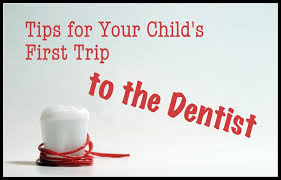 As soon as your child’s first tooth appears, it’s time to schedule a dental visit. The American Dental Association recommends that the first dental visit take place within six months after the first tooth appears, but no later than a child’s first birthday. Don’t wait for them to start school or until there's an emergency. Get your child comfortable today with good mouth healthy habits.
Although the first visit is mainly for the dentist to examine your child’s mouth and to check growth and development, it’s also about your child being comfortable. To make the visit positive:
As soon as your child’s first tooth appears, it’s time to schedule a dental visit. The American Dental Association recommends that the first dental visit take place within six months after the first tooth appears, but no later than a child’s first birthday. Don’t wait for them to start school or until there's an emergency. Get your child comfortable today with good mouth healthy habits.
Although the first visit is mainly for the dentist to examine your child’s mouth and to check growth and development, it’s also about your child being comfortable. To make the visit positive:
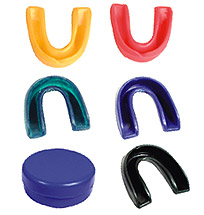 If you play a sport or are active in things like skateboarding or snowboarding, it’s a good idea to wear a mouthguard. It may feel funny at first, but mouthguards are the best thing you can do to protect your teeth from getting broken or knocked out. They cushion blows that would otherwise cause injuries to the lips and face and sometimes even jaw fractures. There are different kinds of mouthguards; ask your dentist which one is right for you.
Adults Under 40
Some people think tooth decay is just for children, but did you know you are at risk your whole life? Untreated dental disease can lead to serious health problems such as infection, damage to bone or nerve and tooth loss. Dental infections that are left untreated can even spread to other parts of the body and, in very rare cases, can be life threatening.
Dental disease is preventable
The good news is that dental disease is preventable. You can practice preventive dentistry on yourself by adopting these healthy habits: Always remember to brush your teeth twice a day, floss between teeth once a day, eat a balanced diet and limit between-meal snacks. And don't forget to schedule regular dental visits. By following a healthy dental routine and making smart food choices, you can lower your risk for tooth decay.
Healthy Habits
Brushing
Brushing your teeth is the cornerstone of any good oral hygiene routine. To keep your teeth and gums healthy, always be sure to brush your teeth twice a day with a soft-bristled brush. The size and shape of your brush should fit your mouth allowing you to reach all areas easily. Also, don’t forget to replace your toothbrush every three or four months or sooner if the bristles are frayed. A worn toothbrush won’t do a good job of cleaning your teeth. Finally, make sure to use a fluoride toothpaste. It makes no difference whether you choose a manual or powered toothbrush—just make sure to brush twice a day, every day.
Flossing
If you play a sport or are active in things like skateboarding or snowboarding, it’s a good idea to wear a mouthguard. It may feel funny at first, but mouthguards are the best thing you can do to protect your teeth from getting broken or knocked out. They cushion blows that would otherwise cause injuries to the lips and face and sometimes even jaw fractures. There are different kinds of mouthguards; ask your dentist which one is right for you.
Adults Under 40
Some people think tooth decay is just for children, but did you know you are at risk your whole life? Untreated dental disease can lead to serious health problems such as infection, damage to bone or nerve and tooth loss. Dental infections that are left untreated can even spread to other parts of the body and, in very rare cases, can be life threatening.
Dental disease is preventable
The good news is that dental disease is preventable. You can practice preventive dentistry on yourself by adopting these healthy habits: Always remember to brush your teeth twice a day, floss between teeth once a day, eat a balanced diet and limit between-meal snacks. And don't forget to schedule regular dental visits. By following a healthy dental routine and making smart food choices, you can lower your risk for tooth decay.
Healthy Habits
Brushing
Brushing your teeth is the cornerstone of any good oral hygiene routine. To keep your teeth and gums healthy, always be sure to brush your teeth twice a day with a soft-bristled brush. The size and shape of your brush should fit your mouth allowing you to reach all areas easily. Also, don’t forget to replace your toothbrush every three or four months or sooner if the bristles are frayed. A worn toothbrush won’t do a good job of cleaning your teeth. Finally, make sure to use a fluoride toothpaste. It makes no difference whether you choose a manual or powered toothbrush—just make sure to brush twice a day, every day.
Flossing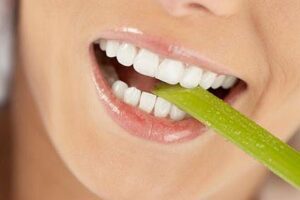 Flossing goes hand in hand with brushing. By flossing once a day,
you help to remove plaque from between your teeth in areas
where the toothbrush can't reach. This is extremely
important because plaque that is not removed by brushing
and flossing can eventually harden into calculus or tartar.
Once tartar has formed, it can only be removed by a professional cleaning.
Adults 40-60
We all know life can be busy, but don’t neglect your oral health. Your
dental care is just as important now as it was when you were a kid.
Untreated dental disease can lead to serious health problems
such as infection, damage to bone or nerve and tooth loss.
Brush your teeth twice a day, floss once a day and see your dentistregularly. This simple routine can help your mouth remain healthy.
Missing Teeth
Did you know that the average adult between the ages of 20 and 64 has three or more decayed or missing teeth? If you are missing one or more teeth, there are plenty of reasons to correct the problem. Talk to your dentist for more information about improving your smile.
Healthy Habits
Brushing
Brushing your teeth is the cornerstone of any good oral hygiene routine. To keep your teeth and gums healthy, always be sure to brush your teeth twice a day with a soft-bristled brush. The size and shape of your brush should fit your mouth allowing you to reach all areas easily. Also, don’t forget to replace your toothbrush every three or four months or sooner if the bristles are frayed. A worn toothbrush won’t do a good job of cleaning your teeth. Finally, make sure to use a fluoride toothpaste. It makes no difference whether you choose a manual or powered toothbrush—just make sure to brush thoroughly twice a day, every day.
Flossing
Flossing goes hand in hand with brushing. By flossing once a day, you help to remove plaque from between your teeth in areas where the toothbrush can't reach. This is extremely important because plaque that is not removed by brushing and flossing can eventually harden into calculus or tartar.
Adults Over 60
Flossing goes hand in hand with brushing. By flossing once a day,
you help to remove plaque from between your teeth in areas
where the toothbrush can't reach. This is extremely
important because plaque that is not removed by brushing
and flossing can eventually harden into calculus or tartar.
Once tartar has formed, it can only be removed by a professional cleaning.
Adults 40-60
We all know life can be busy, but don’t neglect your oral health. Your
dental care is just as important now as it was when you were a kid.
Untreated dental disease can lead to serious health problems
such as infection, damage to bone or nerve and tooth loss.
Brush your teeth twice a day, floss once a day and see your dentistregularly. This simple routine can help your mouth remain healthy.
Missing Teeth
Did you know that the average adult between the ages of 20 and 64 has three or more decayed or missing teeth? If you are missing one or more teeth, there are plenty of reasons to correct the problem. Talk to your dentist for more information about improving your smile.
Healthy Habits
Brushing
Brushing your teeth is the cornerstone of any good oral hygiene routine. To keep your teeth and gums healthy, always be sure to brush your teeth twice a day with a soft-bristled brush. The size and shape of your brush should fit your mouth allowing you to reach all areas easily. Also, don’t forget to replace your toothbrush every three or four months or sooner if the bristles are frayed. A worn toothbrush won’t do a good job of cleaning your teeth. Finally, make sure to use a fluoride toothpaste. It makes no difference whether you choose a manual or powered toothbrush—just make sure to brush thoroughly twice a day, every day.
Flossing
Flossing goes hand in hand with brushing. By flossing once a day, you help to remove plaque from between your teeth in areas where the toothbrush can't reach. This is extremely important because plaque that is not removed by brushing and flossing can eventually harden into calculus or tartar.
Adults Over 60 Just 60 years ago, it was an assumption that as we age we would lose our natural teeth. But, that’s not the case for today’s older adults who are keeping their natural teeth longer than ever before. A healthy mouth and teeth help you look good, eat delicious and nutritious foods, and speak clearly and confidently. Being mouth healthy is essential for good quality of life.
Your mouth is the gateway to your body
Maintaining good oral health habits now is especially important because unhealthy bacteria in the mouth not only can harm your teeth and gums but may be associated with serious medical conditions. Research has shown that infections in the mouth may be associated with heart disease, stroke, diabetes, pneumonia and other health problems that are common in older adults. It really only takes a few simple steps, brushing and flossing daily, visiting your dentist regularly and eating nutritious foods to maintain good mouth health.
Healthy Habits
Brush and Floss Daily
Brushing and flossing your teeth is just as important for you as it is for your grandchildren. Even though it may have been years since you’ve had a cavity, your risk of cavities increases with age. One of the reasons is dry mouth—a common side effect of many prescription medications.
Brush your teeth twice a day with fluoride toothpaste. Choose a toothbrush with soft bristles and a small head to get to those hard to reach areas. Replace your toothbrush every three or four months, or sooner if the bristles becomes frayed. If you have arthritis or other condition that limits movement, try an electric toothbrush.
Clean between teeth daily with floss. If floss is too difficult to work with, try a floss pick or tiny brushes made specifically to clean between teeth.
When you’re buying oral care products, look for the ADA Seal of Acceptance. The ADA Seal has been around since 1931, and when you see it on a package you can trust that the product is safe and does what the manufacturer advertises.
Clean Dentures Daily
Bacteria stick to your teeth and also to full or partial dentures. If you wear dentures, remember to clean them on a daily basis with cleaners made specifically for dentures. Do not use toothpastes for natural teeth or household cleaners, which are too abrasive and can damage dentures that can be expensive to replace.
Take your dentures out of your mouth for at least four hours every 24 hours to keep the lining of your mouth healthy. It’s best to remove your full or partial dentures at night. Your dentist will provide you with instructions about how long your dentures should be worn each day.
Visit a Dentist Regularly
Get regular dental check-ups at least once a year – please do not wait until you have pain. Why? As you age, the nerves inside your teeth become smaller and less sensitive. By the time you feel pain from a cavity, it may be too late and you may lose your tooth. There are also more serious conditions that your dentist will look for, like oral cancer and gum disease, which do not always cause pain until the advanced stages of the disease. By then, it’s more difficult and costly to treat.
When you go to your dentist for a check-up bring the following information:
Just 60 years ago, it was an assumption that as we age we would lose our natural teeth. But, that’s not the case for today’s older adults who are keeping their natural teeth longer than ever before. A healthy mouth and teeth help you look good, eat delicious and nutritious foods, and speak clearly and confidently. Being mouth healthy is essential for good quality of life.
Your mouth is the gateway to your body
Maintaining good oral health habits now is especially important because unhealthy bacteria in the mouth not only can harm your teeth and gums but may be associated with serious medical conditions. Research has shown that infections in the mouth may be associated with heart disease, stroke, diabetes, pneumonia and other health problems that are common in older adults. It really only takes a few simple steps, brushing and flossing daily, visiting your dentist regularly and eating nutritious foods to maintain good mouth health.
Healthy Habits
Brush and Floss Daily
Brushing and flossing your teeth is just as important for you as it is for your grandchildren. Even though it may have been years since you’ve had a cavity, your risk of cavities increases with age. One of the reasons is dry mouth—a common side effect of many prescription medications.
Brush your teeth twice a day with fluoride toothpaste. Choose a toothbrush with soft bristles and a small head to get to those hard to reach areas. Replace your toothbrush every three or four months, or sooner if the bristles becomes frayed. If you have arthritis or other condition that limits movement, try an electric toothbrush.
Clean between teeth daily with floss. If floss is too difficult to work with, try a floss pick or tiny brushes made specifically to clean between teeth.
When you’re buying oral care products, look for the ADA Seal of Acceptance. The ADA Seal has been around since 1931, and when you see it on a package you can trust that the product is safe and does what the manufacturer advertises.
Clean Dentures Daily
Bacteria stick to your teeth and also to full or partial dentures. If you wear dentures, remember to clean them on a daily basis with cleaners made specifically for dentures. Do not use toothpastes for natural teeth or household cleaners, which are too abrasive and can damage dentures that can be expensive to replace.
Take your dentures out of your mouth for at least four hours every 24 hours to keep the lining of your mouth healthy. It’s best to remove your full or partial dentures at night. Your dentist will provide you with instructions about how long your dentures should be worn each day.
Visit a Dentist Regularly
Get regular dental check-ups at least once a year – please do not wait until you have pain. Why? As you age, the nerves inside your teeth become smaller and less sensitive. By the time you feel pain from a cavity, it may be too late and you may lose your tooth. There are also more serious conditions that your dentist will look for, like oral cancer and gum disease, which do not always cause pain until the advanced stages of the disease. By then, it’s more difficult and costly to treat.
When you go to your dentist for a check-up bring the following information:
|

